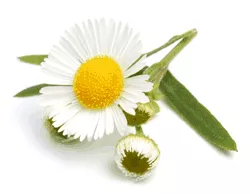
Many medicinal plants have been known since the Middle Ages and their mode of action has been proven many times. Popular plants like chamomile, which is completely harmless when used as a tea, can be used for self-medication without any worries. For others, however, you should definitely seek professional advice.
Herbs and medicinal plants for home use
The medicinal plants basil, lemon balm, sage, mint, chamomile and thyme grow grateful in almost every herb garden. Many of the common kitchen herbs have long been known home remedies - prepared as tea or tincture. The soothing and anti-inflammatory effects of chamomile for stomach ailments, the calming effect of sage for sore throats and the mood-enhancing basil for depression are well known. However, when treating yourself, you should always remember that the effects of a medicinal plant
Using Medicinal Plants
Medicinal Plants are mostly harmless, but expert advice can help you get the most benefit to draw the remedy. Books or the internet can often help. Here you can find out about undesirable side effects, which are rare, and also read how and when the medicinal plant is best harvested. It is also important to know which parts of the plant are best used. With some medicinal plants it is the flowers, with others the leaves. Some have to be dried before use, others, such as mint, can also be brewed fresh as a tea. So if you want to deal with the topic of medicinal plants in detail, you should obtain the necessary information. The information on Wikipedia, among others, is helpful.
Poisonous medicinal plants
Of course, medicinal plants can also lead to poisoning when ingested. Houseleek helps externally with skin ailments such as burns and corns, but internally it causes severe vomiting. And don't forget: You can also have an allergic reaction to one or the other herb!